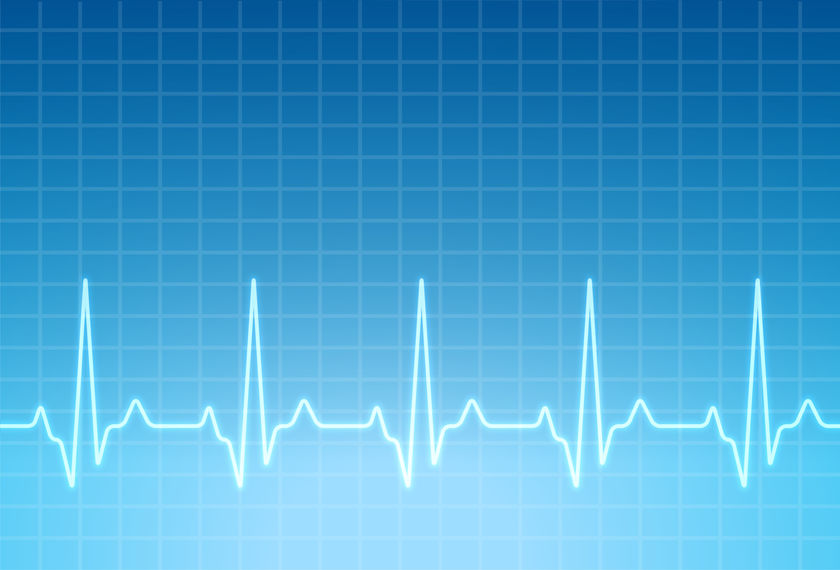
On-Demand
Cardiology & Emergency Medicine CME
Purchase Now!
$397
Looking for treatment options for patients with atrial fibrillation or an overview of cardiology basics? This Cardiology CME course dives into these topics and more, leading you to make more confident patient care decisions.
Cardiology & Emergency Medicine

CME Courses by Midge Bowers DNP, FNP-BC, AACC, CHSE, FAANP, FAAN
Making the Most of a Cardiac-Focused Telehealth Visit
In this session, participants will learn how to get the most out of completing a cardiac-focused telehealth visit. Using a case study approach, you will learn how to complete components of a cardiovascular exam in the virtual environment while leveraging technology.
Hdl, Ldl Cholesterol Oh My!
This session will cover pharmacologic treatments for different components of a lipid panel. Using a case-based approach, we will review treatment options for diverse clinical situations, including patients who are “intolerant/allergic” to specific treatments. Finally, we will discuss various pharmacologic options for treating dyslipidemia.
I Got Rhythm, or Not- Managing Atrial Fibrillation (Rx=0.25)
During this session, you will learn about treatment options for patients with atrial fibrillation. Using a case-based approach, you will learn about pharmacologic strategies for anticoagulation, rate and rhythm control, and when to refer to cardiology for advanced interventions.
Replacing “Failure” With “Function” in Heart Failure Management (Rx=0.50)
During this session, you will learn about the latest evidence-based guidelines for managing heart failure with reduced, mildly reduced, and preserved ejection fractions. In addition, the Pharmacokinetics and dynamics of the newest medications will be covered, as well as best practices for titration of guideline-directed medical therapy.
Urgent Cardiac Situations: What Not to Miss!
This session will address urgent cardiac situations that should not be missed in a primary care setting. The discussion will focus on high-risk low volume events such as acute coronary syndrome, spontaneous coronary artery dissection, aneurysms, and hypertensive emergencies. The focus will be on the subtle and not-so-subtle signs and symptoms that may indicate the potential for decompensation.

CME Courses by Sarah Schettle, PA-C, MS, MBA
“Take On Me”: A Cardiology Primer
This session will provide an overview of cardiology basics to refresh and bring to mind important concepts to help distinguish between “normal” and “abnormal” and understand basic anatomy and physiology concepts in cardiology.
“Beat It”: Understanding Arrhythmias
This session will review the appearance of common arrhythmias and concerning arrhythmias, identify key aspects to look for to distinguish between arrhythmias, and discuss intervention strategies to consider.
“Under Pressure”: How to Manage Hypertension (Rx=0.25)
This session will define the stages of hypertension, review guideline-directed medical therapy recommendations for hypertension, and discuss monitoring recommendations such as labs to be obtained as medications are titrated.
“Every Little Thing She Does Is Magic”: Cardiac Murmurs Demystified
This session will guide the attendee through identifying murmurs through auscultation, determining murmur severity, and determining when interventions should be considered.
“Billie Jean Is Not My Cardiologist”: How to Manage the Heart Failure Patient (Rx=0.25)
This session will delve into the different types of cardiomyopathies, different stages of heart failure, interventions to consider, and management strategies for the heart failure patient.

CME Courses by Zachary Hartsell, DHA, PA-C
Chest Pain Evaluation: Red Herring or the Real Deal? (Rx=0.50)
Chest pain is one of the most common chief complaints to the emergency departments, with a definitive diagnosis elusive in most cases. However, who gets to be sent home? Who requires admission? This presentation addresses those questions by reviewing the challenges in delineating cardiac vs. non-cardiac chest pain. A heavy emphasis will be placed on risk stratification methodologies for patients with suspected cardiac chest pain and an evidence-based approach to the initial evaluation. Finally, this presentation will review optimal testing strategies for cardiac and non-cardiac etiologies of chest pain, including current controversies and guidelines.
Thinking Beyond COVID: Pulmonary Cases From the Wards
This presentation will provide an overview of different types of respiratory cases in hospitals and clinics. Topics will range from common to complex and include an overview of mechanisms, pathophysiology, diagnostic considerations, and up-to-date treatment protocols. Emphasis will be placed on respiratory failure, oxygen supplementation techniques, indications/contraindications for using NIPPV, COPD, and infectious etiologies. Finally, this presentation will provide an overview of acute respiratory distress syndrome, focusing on diagnostic criteria and a review of evidence-based treatment guidelines.
Acute & Chronic Kidney Disease: Seeking Better Outcomes (Rx=0.50)
With kidney disease on the rise, the patient presenting to the emergency department with different types of kidney injury (acute and chronic) will continue to increase. This case-based presentation will allow participants to confidently assess and classify patients with suspected kidney injury, identify the most common precipitants of acute kidney injury, differentiate between acute and chronic disease, and understand the first-line therapy for the treatment of acute kidney injury. Indications for urgent dialysis will also be reviewed.
Syncope: What You Don’t Know Can Harm You
This presentation will review the common cause of syncope and the pathophysiologic mechanisms that commonly lead to syncope. With a focus on initial evaluation and management, this presentation will review the guidelines and risk stratification tools available to aid in diagnosis. Finally, this presentation will provide an evidence-based approach to disposition and follow-up.